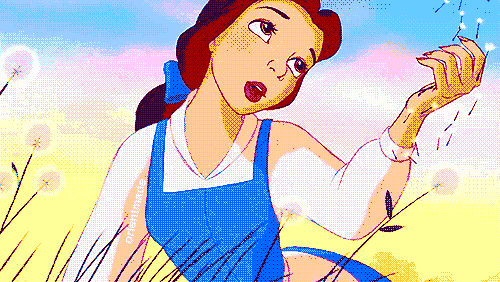Two years ago, Gulnara Karimova, the 40-year-old daughter of Uzbek President Islam Karimov, visited a just-opened restaurant in Uzbekistan’s capital, Tashkent. To the restaurant owner’s horror, Gulnara liked what she saw, as the New Yorker reported:
Later that day, three men in leather jackets came to the restaurant to inform Alisher that the restaurant no longer belonged to him. Within days, Alisher lost his businesses, received multiple threats against his family, and had visitors from the tax and criminal police. A week later, when he escaped across the Uzbek-Kazakh border, his black hair had turned white.
It was far from the first time Karimova had wantonly stolen a random Uzbek’s business. And among all the undemocratic governments in the world, this is just one example of tyranny at the hands of a despotic leader’s relative. But what’s unusual about Karimova’s particular brand of villainy is that she’s also a sequin-clad, breathy pop diva seeking international fame under her alter-ego, Googoosha. Over the years, she has strong-armed her way into multimillion-dollar bribes, all while releasing countless syrupy music videos and singles.
“Gulnara is almost a caricature of an evil mob princess: shrewd, aggressive, and violent without hint of remorse, with really amazing hair,” wrote Joshua Foust, a fellow at the American Security Project, in an e-mail.
Karimova’s antics pile on to the already flagrantly abuses of her father’s regime, as the Independent reported:
Karimov, who has run Uzbekistan since the break up of the Soviet Union, has been accused of boiling dissidents to death, and his security forces shot dead hundreds of unarmed protestors in 2005. Child labour is widespread, with schoolchildren forced into several months of cotton picking every year.
But her concurrent goals of amassing power and gaining international stardom have worked at cross-purposes in recent years, in part because her billion-dollar fortune has largely been acquired on the backs of her countrymen. In 2005, the State Department wrote that she’s become “the single most hated person in the country” for her robber-baron ways.
One U.S. businessmen claimed that after his company turned down Karimova’s offer to buy in to his telecommunications firm, “the company’s frequency [was] jammed by an Uzbek government agency.” A Swedish television investigation this month found she forced a Swedish telecom to pay bribes in order to enter the Uzbek market. In July, the Russian mobile-phone operator MTS claimed that Karimova orchestrated the hostile takeover of the company’s Uzbek branch, Uzdunrobita, according to Foreign Policy.
“She plays a role in most business deals in Tashkent, and if she gets angry, she has the power to impose really severe consequences,” Foust said.
Meanwhile, Karimova has bought ads in Billboard magazine in an attempt to popularize herself in the United States. And like other pop stars, she has her own high-end clothing line, Guli, which she’s tried to get featured in fashion shows worldwide.
“Love Kylie Minogue? Check out exotic pop sensation Googoosha!” her official Twitter feed once gushed.
In an attempt to understand more about Karimova and the repressive regime she props up, some Uzbek watchers have started studying her music videos for glimpses into her psyche.
First, there’s “How Dare,” which has all the elements of your standard euro-pop ditty: heavily accented, repetitive lyrics, synthesizers, indoor fans:
At the Central-Asia site Registan, a western anthropologist writing under the name Davron Ibragimov reads the lyrics as a private cry for help of sorts:
Is Googoosha’s the voice of jealousy that others can do what they want, but she is trapped by her position at the top of society?
Then there’s a December Uzbek awards ceremony, where Ibragimov notes that Googoosha’s choice to sing a particular Uzbek song suggests that she might have her eye on running Uzbekistan herself someday.
The song’s lyrics, involving a daughter addressing her father ‘If you want, I can be 1000 sons for you…’ sparked much public speculation that she was acknowledging her ambition to succeed her 73-year old father as leader of Uzbekistan.
More recently, she’s released ”Nebo Molchit,” (The Sky is Quiet), a collaboration with French actor Gerard Depardieu, which she claimed on Twitter was Depardieu’s idea.
Depardieu also recently agreed to star as a monk in a film Karimova is writing about Asia’s silk road, compounding criticism that Depardieu is too eager to buddy up to Eastern European strongmen.
“I lament the appearance of popular cultural leaders in the close circle of individuals who have a dubious reputation, to put it lightly,” wrote Mutabar Tadjibaeva, an Uzbek human rights activist. She added that Depardieu’s pay for his appearances amount to “financial means which were made on the miseries and sufferings of ordinary citizens of Uzbekistan, or laundered through various schemes.”
And when Gulnara released another video, Round Run, this summer, the opposition news site UzNews eagerly deconstructed her vampiric image in the clip.
At the time, UzNews wrote:
The value of the music video is that Gulnara’s obsession with her appearance and desire to conquer the world of haute couture and show business provide Uzbekistan with priceless demonstrational material about the nature of the Karimov regime.
We can’t know if Googoosha’s performances hold any meaning beyond their most obvious purpose as diversions for a despot. But given that most dictatorial regimes aren’t quite so flamboyant and attention-seeking, Karimova certainly has offered her numerous enemies plenty of ammunition.
























